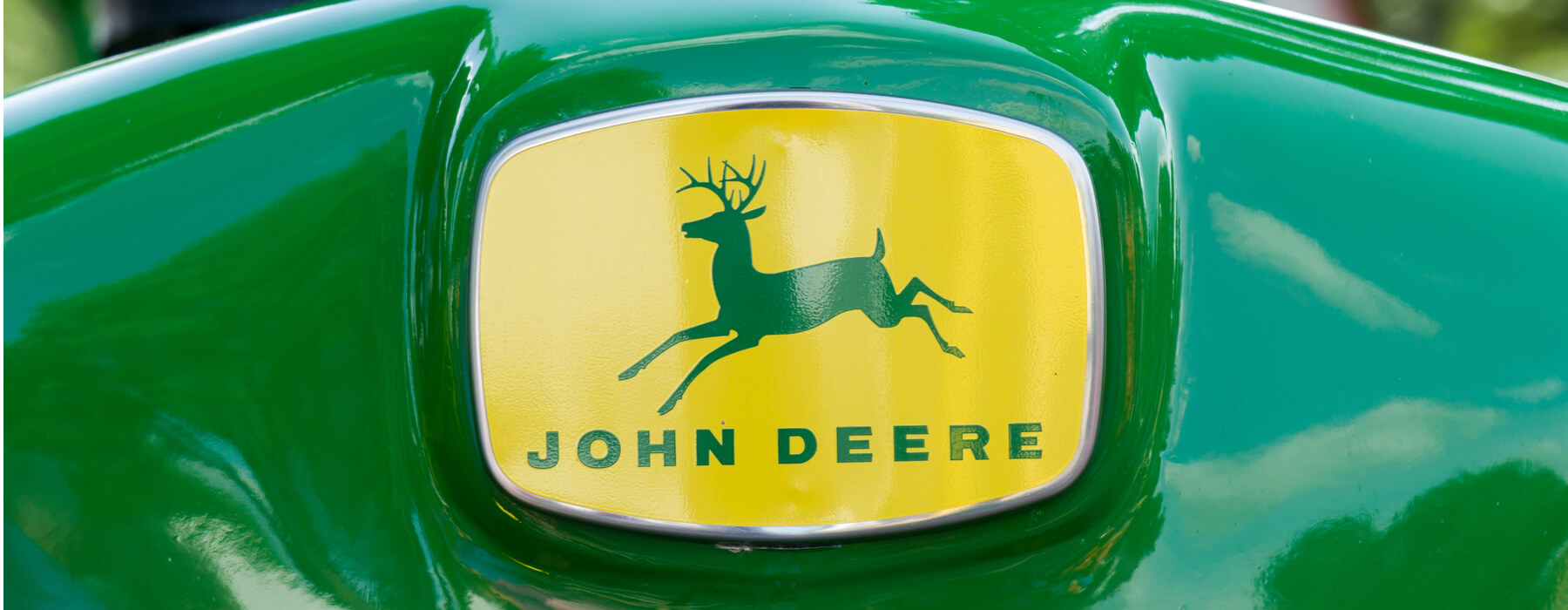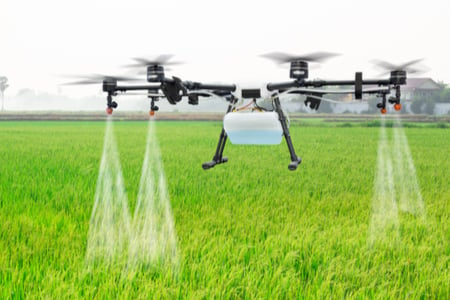How John Deere Is Innovating The Future Of Machinery

Agriculture is the only industry that impacts each and every one of the 7.7 billion people of the world every day. The globe’s dependence on food and crop production has never, ever diminished.
At the same time, new and innovative methods and machinery have changed the way farmers plant and harvest crops, helping in meeting the growing demands of the world. Manufacturer John Deere becomes a leading innovator in this realm and is widely recognized for its significant role in the advancement of agricultural machinery for almost two centuries.
And it doesn’t stop innovating. It currently explores advanced techs that could help in setting up and shaping the future of farming machinery.
A Brief Intro To John Deere
John Deere is the brand name for the American corporation, Deere & Company. It was established in the year 1827 by Mr. John Deere and is headquartered in Moline, Illinois with about 75,000 employees around the world.
The company is more commonly known in the agricultural business and considered to be one of the global market leaders in manufacturing tractors and other agricultural machinery. However, John Deere also manufactures machinery for the forestry and construction industry, drivetrains, diesel engines used in heavy equipment as well as lawn care equipment.
In 1956, the company began its production in Europe and has been operating in Ireland and the UK for over 50 years. Due to the popularity of this brand, from the small-time farmers to owners of hundreds of acres of land, turn to their tractors and other farming equipment offerings. In fact, it is quite easy to find maintenance shops and parts for John Deere tractors like Fortis JD parts than other tractor brands.
It is important to note that safety is one of the highest priorities for many innovators. For further information regarding heavy equipment specifically rubber track repair and rubber track for bobcat, the following video may prove beneficial:
John Deere Innovating the Future Of AgTech
Through their Moline Technology and Innovation Center, John Deere has evolved from a machinery company into a smart technology company that embraces modern innovation and the potential of emerging trends.
Here are some of the innovations of John Deere in farming machinery:
Get Expert MEP Design Solutions for Your Next Building Project!
The Potential Of Electrification
Electrification does not mean lacking in fuel tank. It is about replacing the complete engine. Electrically-driven vehicles are highly efficient in terms of energy consumption and the weight to power density/ratio. Also, the drivelines become easy and quick to control which is a prerequisite for autonomy. Plus, the absence of emissions and gear oil, and the engine, make it highly beneficial for the environment.
- eAutoPowr Transmission
John Deere innovated the eAutoPowr, a continuously variable transmission that features electro-mechanical power split— a first in the industry. This makes farming vehicles more wear-free and efficient than the conventional CVT. Also, this tech increases the productivity of vehicles by up to 45 percent. Joskin and John Deere have collaborated on the slurry tanker featuring 2 electric drive axles in order to take advantage of the 100k of electric power available for external consumption. And since this is an 8-wheel drive system, the tractive power transmitted is more efficient. Plus, it helps in reducing slurry incorporation costs by at least 25 percent.
- Zero Emissions Tractor
From John Deere’s 1 Series compact utility tractor, comes the electric compact utility tractor that features zero emissions, emitting no pollutants from its exhaust. This innovative and eco-friendly tractor features a high PTO power that allows about 2 ½ acres to be mowed on a single battery charge (approx. 4 ½ hours). Other than its eco benefits, the tractor is also very low maintenance.
- Autonomy Through Automation
Full autonomy does not mean replacing a human operator. It’s about giving the operator a new job as a supervisor since the individual is receiving decision support from the intelligent system in real-time.
- Autonomous and Semi-Autonomous Tractors
John Deere currently innovates on autonomous and semi-autonomous tractors. The autonomous tractor concept is a compact electric drive unit with an integrated attachment and has a total output of 500kW. It can be equipped with either tracks or wheels. And depending on the application, it can feature flexible ballasting from 5 – 15 tons to help in reducing soil compaction.
Meanwhile, John Deere is also creating a tractor that drives semi-autonomously and features an integrated crop sprayer. With a built-camera, it’s possible to, for instance, work in row crops by applying plant protection products to a fruit tree plantation. Filling the sprayer tank can also be fully automatic at the filling station to prevent users from being exposed to pesticides. This design is said to reduce costs while increasing productivity by at least 30 percent.
- Autonomous Sprayer
This is a 560-liter spray tank with high ground clearance that makes it highly versatile for applying nutrients throughout the whole growing season. Also, the tracks minimize ground pressure and extend the working window.
- Autonomous Drone Sprayer
A recently introduced piece of equipment, the autonomous drone sprayer features a crop sprayer and a weed scanner. It can scan the weeds and precisely apply pesticides. Its 10.6-liter tank is automatically filled at the field boundary station and it’s also where the battery can be automatically charged. The drone is said to fly for 30 minutes on a single battery charge.
- Advancing with Artificial Intelligence
AI has been a hot keyword for years now. It refers to the simulation of human intelligence in machines that are programmed to reason and think like humans and mimicking their actions.
- Smart Targeting
John Deere, along with their recently acquired startup Blue River Technology, is ushering the next generation of weed control devices that can greatly reduce the use of pesticides in crops.
The “See and Spray” technology specialized in targeted weed-killing by computer vision and machine learning. Based on the 20 images captured by the high-resolution camera every second, the AI tech of the system can differentiate between crop and weed throughout the growing stage.
Not only is it efficient, but this tech also opens new possibilities for growing more eco-friendly and sustainable crops.
- Smart Spraying Drone

Through a collaboration between Volocopter and John Deere, the VoloDrone was created. It is a large spraying drone with a diameter of 9.2 meters and featuring 18 rotors.
With its fully electric drive and replaceable lithium-ion batteries, a single charge can fuel the drone for up to 30 minutes in the air. This drone also has the ability to operate automatically and remotely on a pre-programmed route. Since the frame of the drone is equipped with a flexible uniform payload attachment system, you can mount different devices on the frame, depending on the application. For instance, if you use it for crop protection, the drone is equipped with 2 liquid tanks, a spray bar, and a pump. Its low flying height also allows you to cover up to 6 hectares per hour.
Conclusion
Beyond the above techs, John Deere continues to discover and take charge in shaping a more advanced, productive, and convenient agricultural landscape. The company ensures that farmers and other industries are provided with the best possible and smartest equipment to improve their work and businesses.

Ravindra Ambegaonkar
Ravindra, the Marketing Manager at NY Engineers, holds an MBA from Staffordshire University and has helped us grow as a leading MEP engineering firm in the USA
Join 15,000+ Fellow Architects and Contractors
Get expert engineering tips straight to your inbox. Subscribe to the NY Engineers Blog below.



